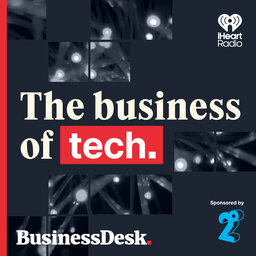Will Bitcoin set us free?
Bitcoin advocate Cody Ellingham joins the podcast to explain why we he is advocating for everyone, everywhere to get into the cryptocurrency.
Ellingham explains his vision for how Bitcoin could put people's financial power back into their hands, rather than under the control of financial institutions and governments.
Plus, we talk AI language Gibberlink and Apple's $500 billion promise to Trump.
Subscribe on iHeart Radio or wherever you get podcasts.
 The Business of Tech
The Business of Tech


